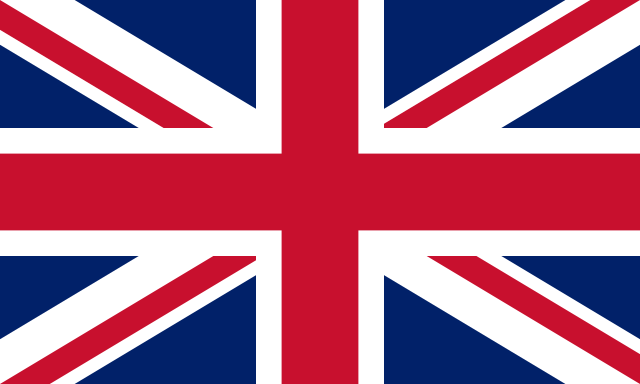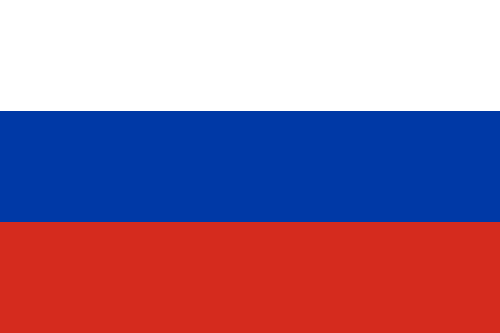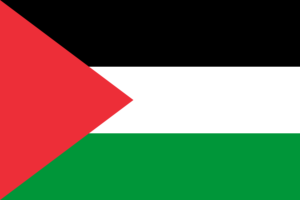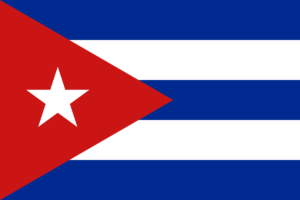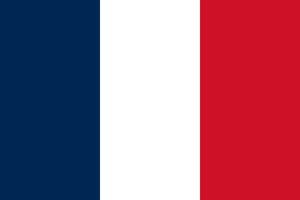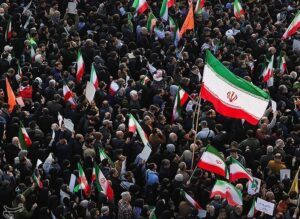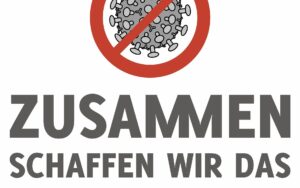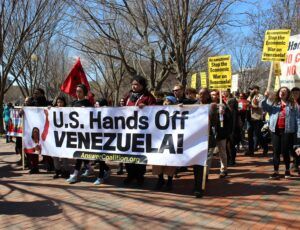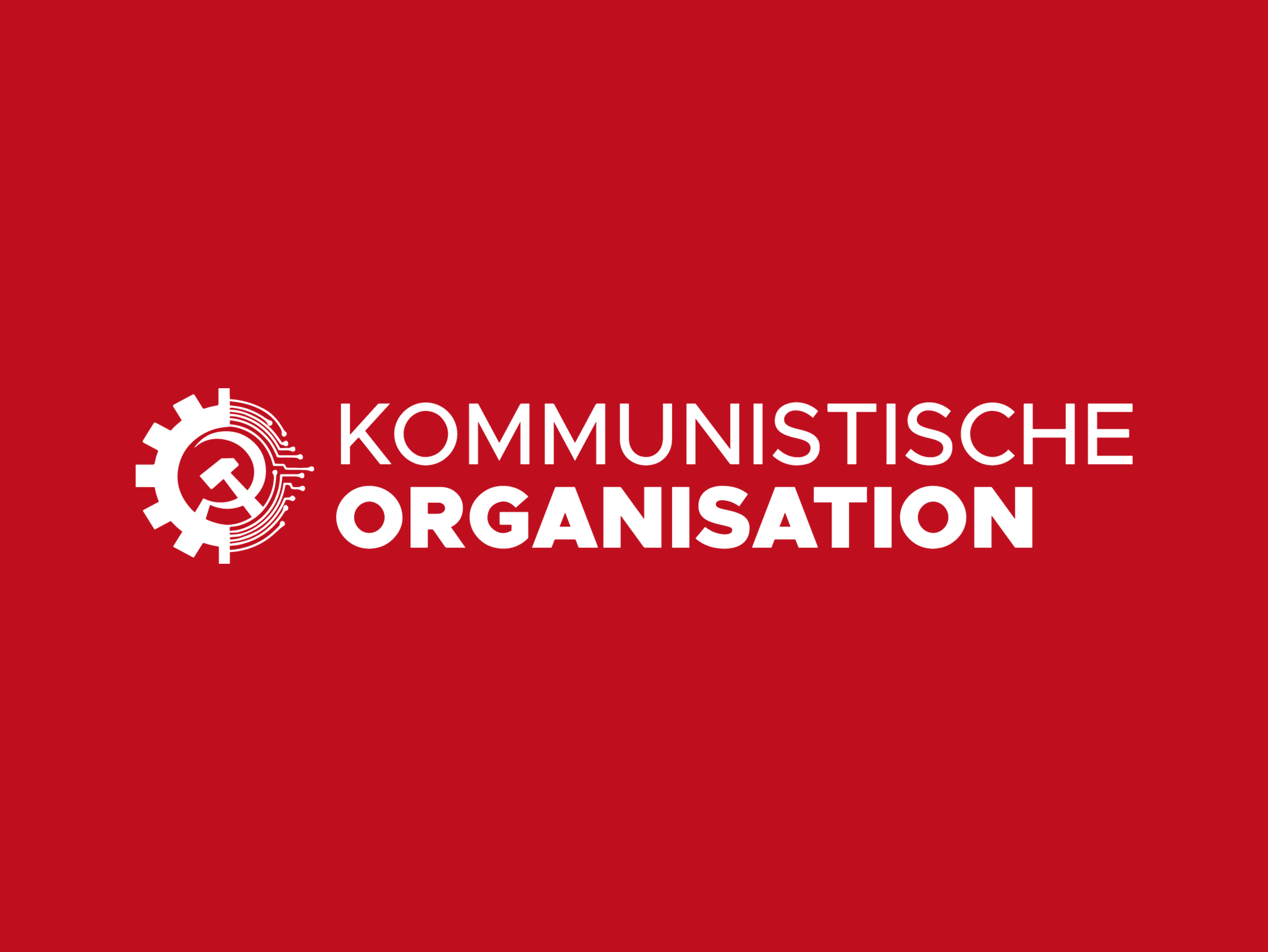Germany and Europe are gearing up for major wars
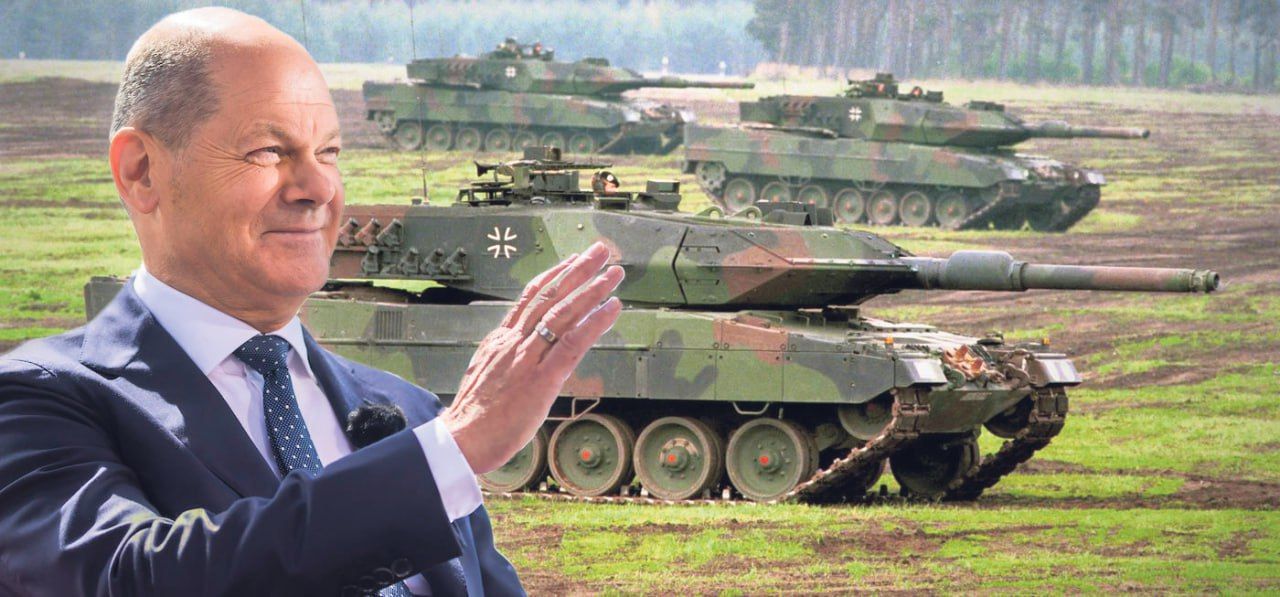
Article by Max
This article was given to the comrades of the Communist Party of Kenia as a contribution to their magazine Itikadi.
The façade of a liberal-democratic, prosperous country
There is a widespread international perception of Germany as an economically highly developed, cosmopolitan and democratic state that, unlike the USA, is committed to diplomacy and balance. Germany spends a lot of work and money to create such an image internationally with the help of an extensive network of NGOs, party foundations and foreign government services. The aim is to recruit well-trained foreign specialists and lay the political and diplomatic groundwork for global business for the German export industry.
The fact that this perception has very little to do with reality has been demonstrated to the peoples of the world, not least by Germany’s aggressive leading role in supporting the genocide in Palestine. The German government wants to defend Israel as a third party in the main proceedings at the International Court of Justice. Last year, German arms deliveries to Israel increased tenfold to over 320 million US Dollars. A military operation by Germany and the EU in the Red Sea was decided in order to combat the outstanding solidarity actions of Ansar Allah for Palestine and thus enable military supplies to Israel. Within Germany, we are experiencing massive racist media incitement and a politically repressive atmosphere in which any criticism of Israel is criminalized under the pretext of „anti-Semitism“. Migrants, Arabs and Muslims in particular, are being racially slandered and socially excluded. Criminal law is being expanded to prosecute any solidarity with Palestine. A „specific German responsibility“ for the existence and „defense“ of Israel is repeatedly invoked in public. The mass extermination of Jews under German fascism during the Second World War has perfidiously been transformed by Germany into a weapon to legitimize its imperialist policies and the genocide of the Palestinians.
We were able to experience a taste of the new German warmongering back in February 2022, with the launch of Russia’s military operation. The media and politicians went into full swing with racist incitement against Russians, alternative perspectives were banned from the public sphere and positions against NATO were legally prosecuted under the pretext of „approval of the Russia’s war of aggression“. Similar to Palestine, the continuity of Germany’s chauvinist and imperialist policy is evident, as Germany has twice invaded Russia in the history of the 20th century and waged a war of extermination against Russians, which cost 27 (!) million Russian lives in the Second World War. Today, German tanks and arms systems are once again aimed at Russia and the German government boasts that it is the second largest financial supporter of Ukraine after the USA.
The Social Democratic German Defense Minister Boris Pistorius recently warned the German public that there would be a war against Russia within a few years. Marie-Agnes Strack-Zimmermann (FDP), the leading candidate of the right-wing liberal governing party for the EU parliamentary elections in May, is pushing for the formation of an EU army and is heavily campaigning for rearmament. Two years ago, Germany passed an extra budget for military spending of over 100 billion US dollars and is also increasing its annual war spending to almost 60 billion US dollars. However, this is no longer enough for the ruling elite. They are boosting each other in public with ever higher demands for the arms budget. One top politician and „defense expert“ recently called for over 320 billion US dollars in additional military spending. The goal? The development of an internationally competitive war industry.
This policy is accompanied by attacks on the living conditions of the working class in Germany. Inflation rates of almost 7% (2022) and 6% (2023) have severely devalued workers‘ wages. Costs for food, heating, petrol, rent and other items have risen massively. Recently adopted attacks on the welfare system and social security for refugees serve to exert further pressure to lower wages. Almost a fifth of all employees in Germany already work in the so-called low-wage sector. Unfortunately, there is hardly any resistance to these attacks. The working class is being deeply integrated into Germany’s imperialist policies by a trade union led by wealthy labor aristocrats. More on this later in the text.
In the following, we will first take a closer look at the role of German imperialism in NATO’s war against Russia and, in particular, its relationship with the US. These questions have caused controversial discussions in Germany and around the world, especially after the Nord Stream gas pipelines were blown up, not least within the communist movement.
A brief history of German imperialism in the world
In order to understand Germany’s current role in the world, it is essential to recall at least a few decisive milestones in the development of German imperialism.
In relation to its European competitors, namely the homeland of capitalism England and also France, capitalist industry took hold in Germany late, but all the more dynamically. The up-and-coming German bourgeoisie joined forces early on with a class of reactionary feudal landowners who were closely linked to militaristic Prussia. A bourgeois revolution (1848) that was only partially carried out and the late overcoming of feudal fragmentation (1871) slowed down the ambitions of the German capitalists. Their advantage, however, was that they could build on an already high level of technology and science. At the end of the 19th century, German capitalists rose to become world leaders in sectors such as the chemical and electrical industries. In contrast to its European competitors, Germany did not have anywhere near as large a colonial dominion. Monopoly capital lacked access to raw materials and a sufficiently large market. Its „birth defect“ of being a capitalist superpower that came too late and too short erupted with Germany’s aggression in the First World War – an imperialist war to redivide the world. Germany urged to dominate Europe in order to be able to assert itself from here, especially against the USA. The defeat in the First World War was a severe setback for the German capitalists‘ drive to expand. Together with the growing threat to capital posed by the victory of the October Socialist Revolution, this laid the decisive basis for a renewed attempt to achieve world power. For the US, Germany’s hostility towards its European rivals, England and France, was a welcome development. German finance capital fostered fascism and, with the Second World War, committed monstrous crimes to conquer Europe (and far beyond, such as the German fascists‘ African campaign to conquer North Africa) and destroy the Soviet Union.
After the end of the Second World War in Europe, German imperialism was on the ground. With the help of the United States, which had established itself at the head of the imperialist world order through the war, West Germany was able to rebuild itself as a barrier against the socialist world system. The first NATO Secretary General Lord Ismay summed up the US strategy for Europe in a clear formula: Keep Russia out, keep the USA in, keep Germany down. Under the conditions of the post-war order, a constellation between the major European powers and the USA emerged, the basic lines of which are still valid today. The USA guarantees the framework of the imperialist order in terms of military and financial policy. The major European powers grudgingly accept the dominant role of the USA, which is expressed in NATO in particular, for lack of any alternative. The result was a relationship that had to be characterized by both partnership and rivalry. German monopoly capital, which had profited from the predatory war and the millions of prisoners of war used for forced labor, was able to pursue its economic and political resurgence under the protection of US imperialism after the Second World War. With the economic and political integration of Europe, from the European Coal and Steel Community to the EU, Germany was able to realize a long-cherished strategy. Particularly after the counter-revolution – the defeat of socialism in Europe – German monopoly capital was able to use European free trade to place itself at the forefront of Europe from West to East. To this day, Eastern European countries serve as a cheap labor base for German industrial production, the EU member states as a market – they are flooded by the German export-oriented industry and are competing to the death. German car manufacturing in particular plays a key role in structuring production and supply chains to suit its interests. An important component of this economic strategy of German monopoly capital was access to cheap energy resources, primarily Russian gas.
The USA was not opposed to European integration. On the contrary, it even strongly promoted it after the Second World War. However, the decisive factor for US imperialism to this day has been that this development has remained integrated into the order it guarantees in terms of security policy. EU expansions went hand in hand with NATO expansions. After 1990, the US strengthened its military influence in Eastern European countries in particular, which in any case viewed an overly powerful Germany with a certain degree of skepticism in light of historical experience. An independent EU army was however always a no-go for the USA and has so far failed, despite numerous attempts by Germany.
War against Russia – Germany a vassal of the USA?
Since February 2022 at the latest, we have been experiencing a seemingly completely contradictory situation in Germany. On the one hand, Germany is taking a united and particularly strong stance against Russia alongside the US and the other NATO states. The German Foreign Minister Annalena Baerbock had already said on February 25, 2022 that the sanctions were imposed with the intention of „ruining Russia“. Alongside her, other political and economic leaders are also pursuing an aggressive war rhetoric against Russia. On the other hand, the sanctions policy and the economic decoupling from Russia had created problems for the German economy, primarily with regard to its supply of cheap energy. In addition, the Nord Stream pipelines were blown up in the fall of 2022, an attack on Germany’s central energy infrastructure that was tolerated without any major uproar or public outcry. How can this be explained?
In fact, these developments have led to very controversial discussions, even within left-wing and communist circles, which continue to this day. Should progressive forces demand the independence of German imperialism from the USA? Is there still a strong independent bourgeoisie in Germany that needs to be fought against? Wouldn’t representatives of the bourgeois class even be potential allies for such a national strategy of independence from the US? Last but not least, these questions also give rise to controversial discussions about the new party „Bündnis Sahra Wagenknecht“, which was founded in January and is campaigning for such a national strategy for German capital. Some non-exhaustive theses on the issue are presented below. Many questions remain unanswered and require further in-depth study and intensive discussion, also in an international context. These are problems and questions that have a direct impact on the class struggle. They are questions of strategy and tactics. Who is the enemy, who is a potential force of alliance? What are the main lines of political struggle? A more comprehensive understanding of the functioning and relations of power of the current imperialist order must be developed by progressive forces worldwide. We want to continue working on this and try to contribute with the means at our disposal.
Germany was already involved in an aggressive policy against Russia long before 2022. German foreign policy was heavily involved in the Maidan coup in 2014 and helped turn Ukraine into an anti-Russian entity. Over the course of the 00s, it became increasingly clear to the West that Russia could not be subordinated and integrated in the desired way. Putin’s speech at the Munich Security Conference in 2007 certainly stands out, in which he said in response to the constant expansion of NATO to the east: „I think that the unipolar model is not only unsuitable for today’s world, but impossible“. In contrast to the USA, Germany nevertheless remained more ambivalent in its relations with Russia, which, incidentally, have always been defined by the simultaneity and alternation of cooperation and confrontation, also with regard to economic and political relations since the end of the 19th century. In contrast to the US, Germany has been more cautious in some areas – such as the issue of Georgia and Ukraine joining NATO – precisely because of its economic ties with Russia.
After the counter-revolution around 1990, the so-called „unipolar moment“, US strategists made no secret of their claim to be the sole superpower that would not tolerate any competition. With its policy in Yugoslavia and Eastern Europe, the USA constantly tried to limit German influence and, in particular, to secure its power in Europe militarily. In line with Lord Ismay’s above mentioned line, Germany’s deepening economic ties with Russia had to be broken. Both Trump and Biden had certainly not been sparing in their criticism of the gas pipelines, even imposing sanctions on Germany and all companies involved in the construction of Nord Stream II. Angela Merkel and, after her, Olaf Scholz nevertheless stuck to the construction of the pipeline, clearly expressing Germany’s goal of great power politics.
From the US perspective, it is a very desirable outcome that the German competitor is weakened by the war and now instead of Russian gas is forced to buy US LNG. On the one hand, Germany is currently not in a position to sufficiently counter the actions of the USA and at the same time is tied to the USA with strong common interests in maintaining the imperialist order. At the same time, the German bourgeoisie cannot accept Russia’s growing influence in Eastern Europe – „its backyard“ – and is therefore breaking ties with Russia out of its own direct interests.
Crucial to the background of NATO’s war against Russia is the crisis of hegemony of US-led imperialism. The economic crisis of 2007 and the economic rise of China, which is reflected in the Belt and Road Initiative, are probably the most striking manifestations of this crisis. The interest in preserving the imperialist order as it was established under the leadership of the USA unites the major European powers to a certain extent. They are not (yet) in a position to maintain their dominant role by their own means. Last but not least, they lack military capacity. But is it at all realistic that Germany, Great Britain or France will be able to develop these capabilities to act independently? To what extent are the ruling circles of monopoly capital acting completely rationally in this respect? Hasn’t historical experience, particularly that of the Second World War, shown what adventurous dreams of great power the capitalists indulge in? We need to understand these contexts better.
In any case, it looks as if German imperialism is trying to use the war against Russia to position itself stronger and potentially more independently. The Bundeswehr (German military) is assuming key responsibilities on NATO’s eastern flank, which it is also using to build up its own capacities. Not only is its own military potential being massively expanded, extensive subsidies are cushioning the sharp rise in energy costs for monopoly capital. German capitalists are also finding a variety of ways to circumvent the sanctions against Russia that affect their business in one way or another. However, this is countered by the closure of factories and relocation of major German corporations. In some cases, they are also being lured to the USA with promises of hefty subsidies. The extent to which German imperialism is actually currently seeking to strengthen its independence and its own monopoly capital, and the extent to which this is actually successful and a realistic prospect, still needs to be better investigated. Politicians in the German government never tire of proclaiming their transatlantic friendship on the one hand and their shameless ideas of an aggressive German great power policy on the other. Lars Klingbeil, Chairman of the SPD, put it this way in the summer of 2022:
„Germany must aspire to be a leading power. After almost 80 years of restraint, Germany now has a new role in the international coordinate system.“[1]
Anyone who can do the math knows that Klingbeil is hoping to resume the leadership role that German fascism brutally tried to enforce. What is clear is that no progressive development can be expected from a strengthening of the independence of German imperialism – however realistic it may be. The brief historical overview should above all illustrate the reactionary tradition of German monopoly capital. For over 150 years, the local corporations and banks have developed and refined their global accumulation regime. They form the continuity of Germany, beyond the changes in political forms of rule and major disruptions. German monopoly capital represents a chauvinistic and adventurous class aimed at imperialist expansion and subjugation, which only accepts its dependence to the US for as long as it absolutely has to.
We want to continue to work on these questions. We want to understand how united „the West“ really is in waging a third world war against China? Where are the contradictions that could be deepened? How does German imperialism operate worldwide, and how can we build an internationalist resistance against it? Does the West still need the sort of fascist rule that was practiced in the 20th century, or have the techniques of rule been refined and the unity of the West reached the point where other forms of rule are needed to preserve imperialism?
Strengthening the anti-imperialist struggle and international solidarity
Every day it becomes increasingly clear that NATO’s war against Russia is neither about Ukraine nor „just“ about Russia. The supremacy of Western imperialism under the leadership of the US is itself in deep crisis. Last but not least, an important effect of the magnificent struggle of the Palestinian people against the Israeli occupation force is that the lines of the international class struggle are becoming more evident. The mask of liberal democracy has been removed – the reality of imperialist subjugation and aggression is confronting the peoples of this world with all clarity. In the crisis, the reactionary nature of imperialism becomes obvious. In fact, this tendency of crisis within the imperialist countries and also in Germany is linked to the strengthening of reactionary and chauvinist elements of domination. The current German government itself is dismantling democratic rights, flanked by a well-controlled media apparatus with chauvinist agitation. At the same time, attempts are being made to channel any discontent of the people into even more reactionary sections of bourgeois rule. Openly fascist forces are being strengthened, left-wing opposition forces are being integrated into the ruling bourgeois-liberal establishment.
In principle, this situation offers an enhanced opportunity to expand and tighten the ranks of the revolutionary workers‘ movement and raise the level of class consciousness, precisely because the policies of imperialism must show themselves more visibly. However, further powerful barriers stand in the way of this goal within the German working class. The German Trade Union Confederation (DGB), the umbrella organization of German trade unions, which unites around six million members, stands firmly on the side of German imperialism, both when it comes to the war against Russia and Germany’s support for the genocide in Palestine. The trade union leadership and the Social Democrats (including the Left Party) are integrating large sections of the working class into the German war drive and are embracing the interests of German monopoly capital to keep the German economy as competitive as possible – ostensibly to safeguard their own employment. The bribery of broad sections of the working class acts as the material basis for the opportunism of the labor aristocracy. Any movement for international solidarity, militant trade union politics and opposition to imperialist policies is stifled in a practiced manner within the trade unions and broad sections of the public.
Today in Germany, the solidarity movement with Palestine is one of the most driving forces with great progressive impact. The migrant youth from within the German working class seems to be in sharpest conflict with Germany’s chauvinist and neo-colonial policies on the side of Israel. Last but not least, progressive potential for an internationalist and militant German workers‘ movement can be found here. It is the task of communists to take up and to foster this potential.
Unfortunately, however, there is also a strong radical left-wing influence in communist circles, which renders a supposedly consistent stance against the ruling government completely tame. The idea that the war in Ukraine is a supposedly inter-imperialist war is widespread. In short, the idea is that on an international scale there would be a competition between two imperialist poles, one organized around the US and the other around China. The workers‘ movement should take neither side, but fight for socialism. Such a position was also advocated in the Communist Organization after February 2022 by some who later split from our organization. We have recognized how dangerous this supposedly highly revolutionary position is in the reality of the class struggle. In practice, such verbal radical leftists mainly turn against everything and everyone who is in sharp conflict with imperialism in order to „warn“ the workers‘ movement that Russia, China, Mali, South Africa etc. have capitalist economies and governments that must themselves be fought against. Colonial and neo-colonial subjugation are either marginalized or completely ignored. In fact, such forces play into the hands of the propaganda and political line of NATO imperialism and advocate the continuation of the imperialist order.
In contrast, together with other forces, we are trying to strengthen and better understand the connection between national liberation, anti-imperialist struggles and the struggle for socialism. The loss of confidence of the peoples of the world towards the European and North American superpowers is good and must be intensified by communist forces. The political and economic crisis of imperialism must be deepened through class struggles and national liberation struggles. We stand for the defeat of NATO and German imperialism, whether in Ukraine or Palestine, West Africa or China. The struggle for sovereignty and independence from the system of imperialist oppression and exploitation must, in our view, be supported and understood as part of the struggle for socialism.
In this sense, the enormous and dynamic developments within the imperialist order present us with concrete and major tasks. The communist and anti-imperialist forces must tighten their ranks worldwide to a much greater extent. We need a common international connection, discussion and unified action in the worldwide class struggle. With this in mind, we – albeit as a small and young organization – seek international exchange, the deepening of political relations and sharp debate in order to better and more comprehensively understand the burning issues of our time. With this in mind:
Up, international solidarity!
[1] Speech by Lars Klingbeil on the “Zeitenwende” at the Tiergarten Conference 2022, held on June 21, 2022 in Berlin.
